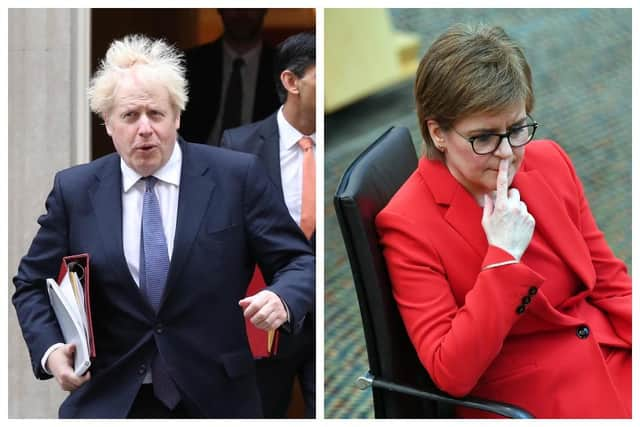When it comes to transparency, it is 'pot, meet kettle' for the SNP and Tories
As Westminster is embroiled with accusations of cronyism over ‘fast-track’ Covid-19 contracts worth millions and the fallout of the Owen Paterson row, the SNP benches crow almost daily about how things would be improved should Scotland be independent.
The week has seen a Scottish Tory peer, Baroness Mone, linked to a £200 million contract for a company with links to her husband, something she denies any knowledge of, while ministers claim key meeting notes are not lost, but simply not yet found.
Advertisement
Hide AdAdvertisement
Hide AdThis is inevitably fruitful ground for the SNP who launch into criticism of a lack of “due process or scrutiny”.


Simultaneously, in Holyrood, the SNP-led Scottish Government sends out a Green minister to defend a non-delay delay to a flagship recycling scheme that is being led by a private company.
This, she tells the chamber, means it is up to the company to decide what to publish, not the government.
Inevitably, this is fruitful ground for the Scottish Conservatives, with MSP Maurice Golden asking for the government to “stop the secrecy” and release details of the cost and the details of tender, including the specification.
This demand for openness from both party’s opposition frontbenches is commendable.
But surely these opposition politicians cringe in embarrassment when confronted with the reality of what their respective parties are doing in government.
Voters watch on as a Tory UK Government continue to ignore and throttle freedom of information, delete potentially important private messages and stamp down on transparency.
They also watch the SNP Scottish Government falling foul repeatedly of transparency rules – take care home deaths, Covid positive discharges into care homes, the Lochaber smelter guarantee – as key meetings went unminuted.
Advertisement
Hide AdAdvertisement
Hide AdThe ongoing failure of both governments to embrace transparency is an embarrassment to both.
It is clearly not a question of principle, given when the parties are in opposition they are both clear about what should and should not be in the public domain.
Instead it is the pressure of government and threat of not being re-elected that drives both to seek murky territory time and time again.
A message from the Editor:
Thank you for reading this article. We're more reliant on your support than ever as the shift in consumer habits brought about by coronavirus impacts our advertisers.
If you haven't already, please consider supporting our trusted, fact-checked journalism by taking out a digital subscription.
Comments
Want to join the conversation? Please or to comment on this article.

